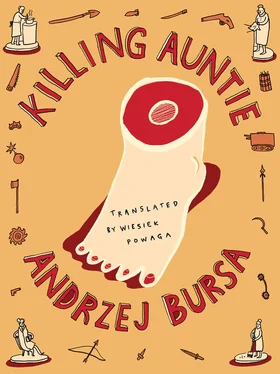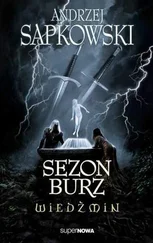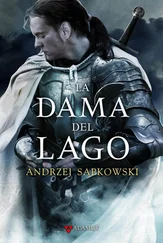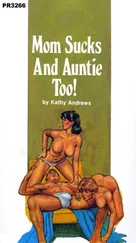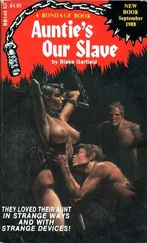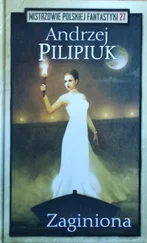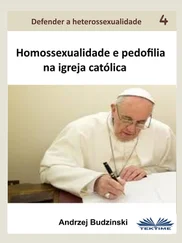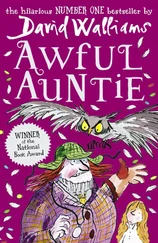Andrzej Bursa
Killing Auntie
Rebel Lit is a new series by New Vessel Press showcasing works of literature that display a spirit of rebellion and challenge. More than merely transgressive, some of these manifest heroism and courage, others walk conspicuously on the wild side; all of the books in the Rebel Lit series are creative works of unusual caliber.
Killing Auntie is the second title in this series. Andrzej Bursa was born in 1932 and died young, at 25, in 1957. Though legend saw fit to attribute his death to suicide, congenital heart disease was what actually brought this startlingly innovative writer to his early end. During his brief lifetime, Bursa wrote poetry and prose in a style that today is instantly recognizable for its bold confrontation with reality through the use of subversion and the absurd. Killing Auntie is just that sort of story. Bursa never expected he’d see it published in his lifetime. The senseless violence, the black humor, the collusion of others (though quite humorously recounted) — all these may be read allegorically, as a commentary on the political situation of 1950s Poland, though what comes first is the literary quality itself. Bursa’s name became a rallying point for young people all over Poland who wished to express themselves freely, innovatively and without political repercussions.
THANKSGIVING PRAYER (WITH A GRUDGE)
You didn’t make me blind
Thank you O Lord
You didn’t give me a hump
Thank you O Lord
You didn’t make my father an alkie
Thank you O Lord
You didn’t give me water on the brain
Thank you O Lord
You didn’t make me a stutterer a gimp a midget epileptic hermaphrodite a horse moss or something from the flora or fauna
Thank you O Lord
But why did you make me a Pole?
Andrzej Bursa
translated by Wiesiek Powaga
To all who once stood terrified before the dead perspective of their youth
I LEFT HOME AT FOUR IN THE AFTERNOON. AFTER A FEW steps I stopped. I needed a purpose. Nothing came to mind. I resumed my walk like a condemned man, resigned to aimless wandering around the town. I went out for these long and exhausting walks almost every day. But I always made sure I had a purpose. Chores, visits. Never did any of that, of course. After all, I had nothing to do, no one to visit. But the purpose was there, even though I knew it was a sham.
Today for the first time I realized I had no purpose. I went out without a reason. These purposeless, lonely walks were murderous. I knew that. In summer, when I walked through woods, fields or overgrown riverbanks, they at least had some justification. They didn’t exhaust me so much. Absorbed into the landscape, becoming part of it, I didn’t have to think. I could rest. But in winter the town brought no calm. I ambled around, stopping in front of old archways and shop windows full of cellophane displays but found no solace in either. I appreciated — and understood — the charms of architecture and of the city lights, yet saw no point in contemplating them. I longed for a purpose like a sick man longs for a cure. Held hostage by my own nature, I suffered terribly.
I walked slowly and with difficulty. The downy snow, which had fallen during the day, lay on the pavement like heaps of manna. I waded through them. The interminable circling of the streets was wearing me out. I knew that, overcome by exhaustion, I would soon reach a point when I would think of returning home with pleasure and, barely standing, rejoice at the sight of my window. But it was no consolation. I knew too, that back at home, resting on my bed, I would reach for the mirror and look at myself. For a long time.
I examined my face several times a day, every day, looking for signs of maturity, or old age. But the face remained stubbornly young. Nine years of youth lay before me like an endless fallow field unfit for farming. On top of that all my limbs were in perfect order and I was in rude health. There was no salvation. Aimless wandering in bad weather was no fun. Returning home was impossible. The thought that I could spend the rest of the afternoon and the evening poring over reading for my university classes barred my way. There was only the street, which ruled out any surprises.
In my wandering I could never keep away from the center. All the excuses could be found within the surrounding boulevards. Today I hadn’t dared to break my habit. Yet the main streets and squares tired me with their noise and crowds. I turned surreptitiously into a narrow, almost empty street close to the main thoroughfare. I found myself in the middle of a labyrinth of old streets bordering on the center yet completely isolated from it. Bells hung on wires by the gates. There was snow on the backs of the crabs, unicorns and little bears carved over the pediments. The labyrinth wasn’t big. I could cross it both ways in ten minutes. So I walked as slowly as I could, trying to keep my strides short, resisting the temptation to stop. I reached the stone wall of the Capuchin monastery. I knew that in a few seconds I’d come to a small square by the river. From there I could see the paved alley that I’d have to take as my return route. The prospect made me want to stop several times and run the other way. But the route led through the streets I knew by heart; there was no point in running away from the tarmac alley straight back into the embrace of a noisy road.
When I got to the end of the wall I stopped for a moment’s rest, like a swimmer about to plunge back into the water. I looked to one side. Two stone angels wearing snowy hats stood guarding the small gate in front of a church. The courtyard before the little church was an oasis of peace. Over the surrounding wall, below street level, tree branches from the orchard on the other side were sticking out. They were covered in snow. I was long hardened to all kinds of soppiness and so was able to look calmly at the relief on the walls and the trees growing in the cloister, which I had known so well since childhood.
From the door leading into the enclosure a bearded monk came out with a broad wooden shovel and began to clear the snow. He didn’t pay any attention to me but I felt awkward. I stepped out of his way and began to study the relief on the wall. The monk kept shoveling the snow, panting laboriously. The longer we were alone the more awkward I felt. In the end I reached the point of no return. Slowly, I approached the gate and entered the church. I took a quiet pew at the back. I was not alone. Three elderly women knelt in front of me, two in the pew, one on the stone floor. Above the altar flickered a little flame like a small red heart. Next to the side altar shone a luminous entrance to a small cavern. Inside it, behind a strong grille, lay the golden arm of a seventeenth century hero.
Once, I knew the legend well about the hero who bequeathed his golden arm, a gift from the king, to the Capuchin order. Today some details were missing from my memory. Hiding in the pew I took the role of an observer. A banal and thankless role: there was nothing to observe here. From the sacristy emerged a surpliced monk with a stole over his neck. Briskly, he crossed the floor and shut himself in the confessional. I didn’t see his face clearly but with a beard and a high brow he seemed to me beautiful. He was tall, broad-shouldered, not young. The trellis on the confessional door closed, the stole was hung outside. I thought that at this hour it was unlikely anyone would come to confession. By the altar I spotted the same monk who’d been sweeping the snow. He was performing some strange ritual that involved a lot of kneeling. It was high time for me to leave; I just didn’t feel like it. In the empty church (the three women being gone), facing the mute expectation of the priest-confessor, I felt I had found my role. I got up and walked up to the confessional, knelt and knocked. For a fleeting moment I felt fear and stage fright but didn’t back down. Something rustled inside the confessional and the priest welcomed me with a Latin formula. I took a deep breath and recited back:
Читать дальше
